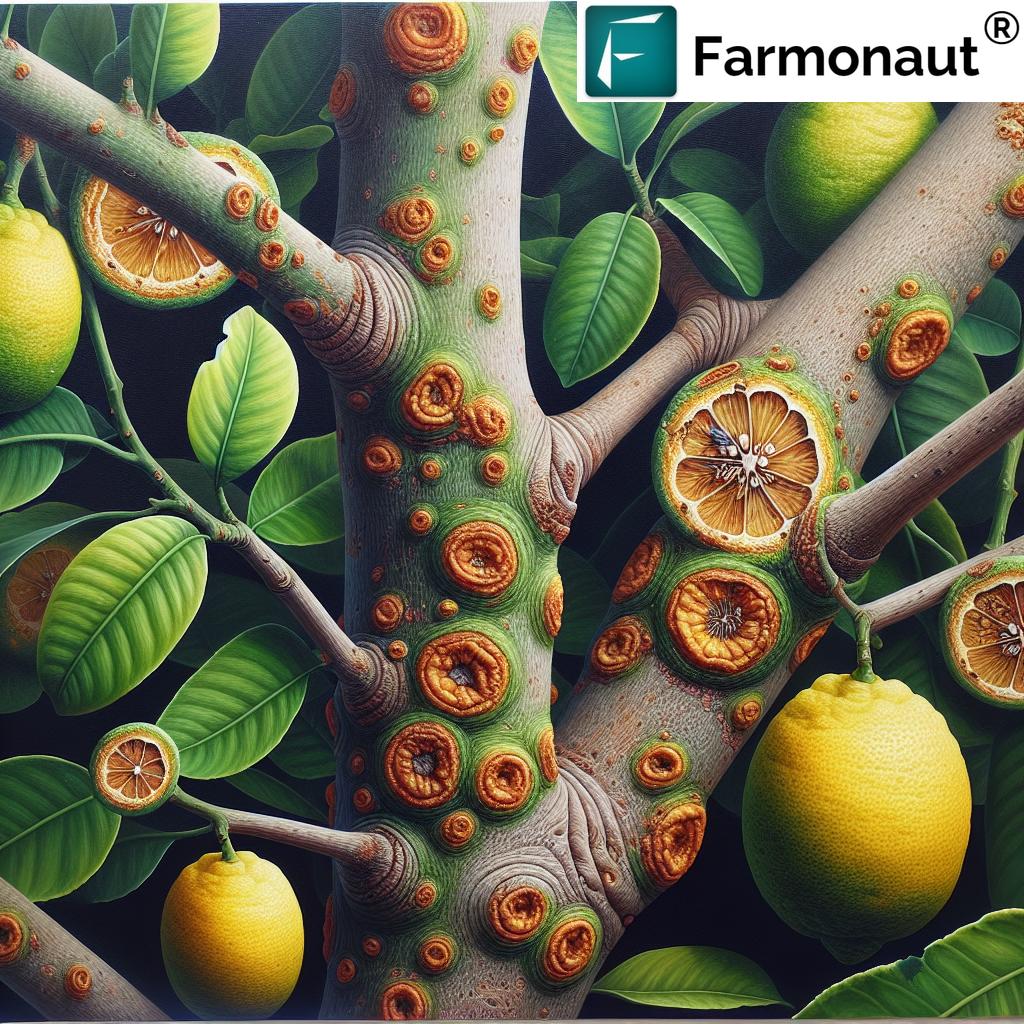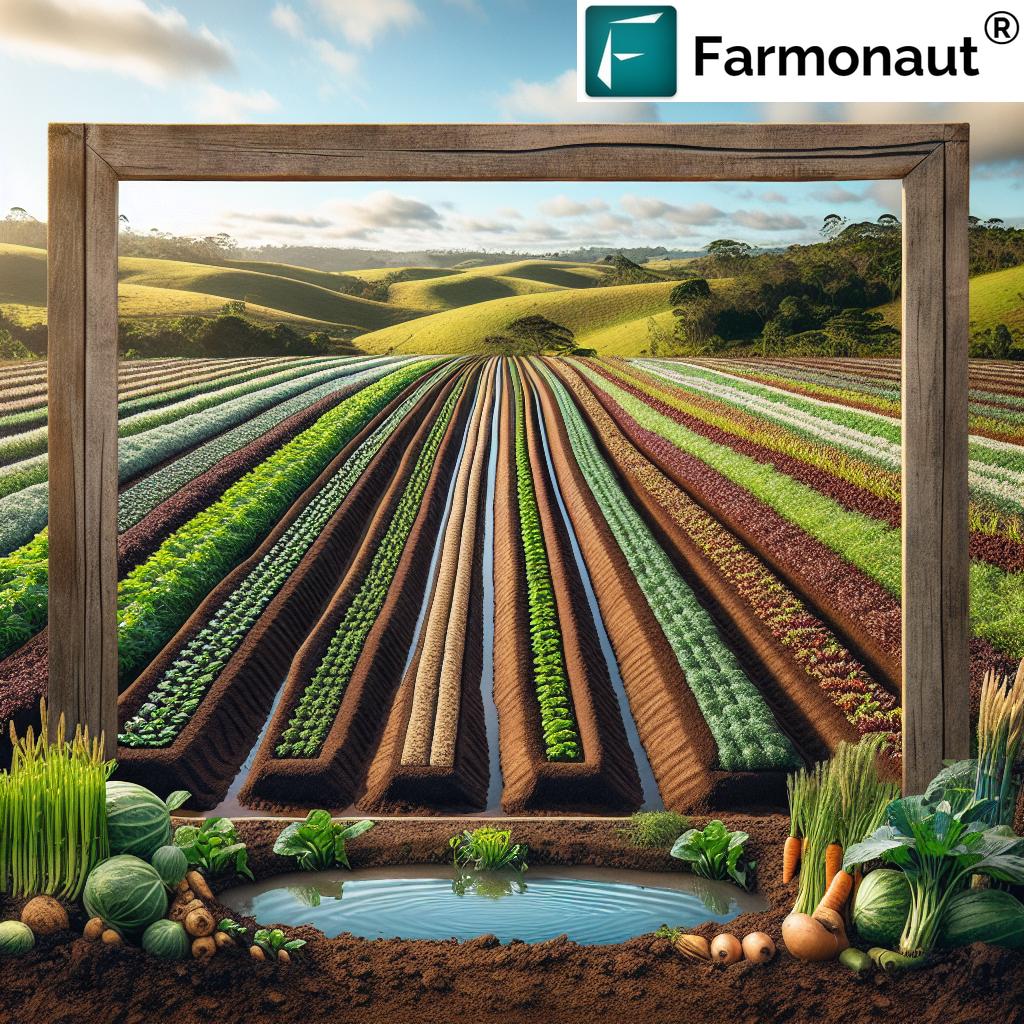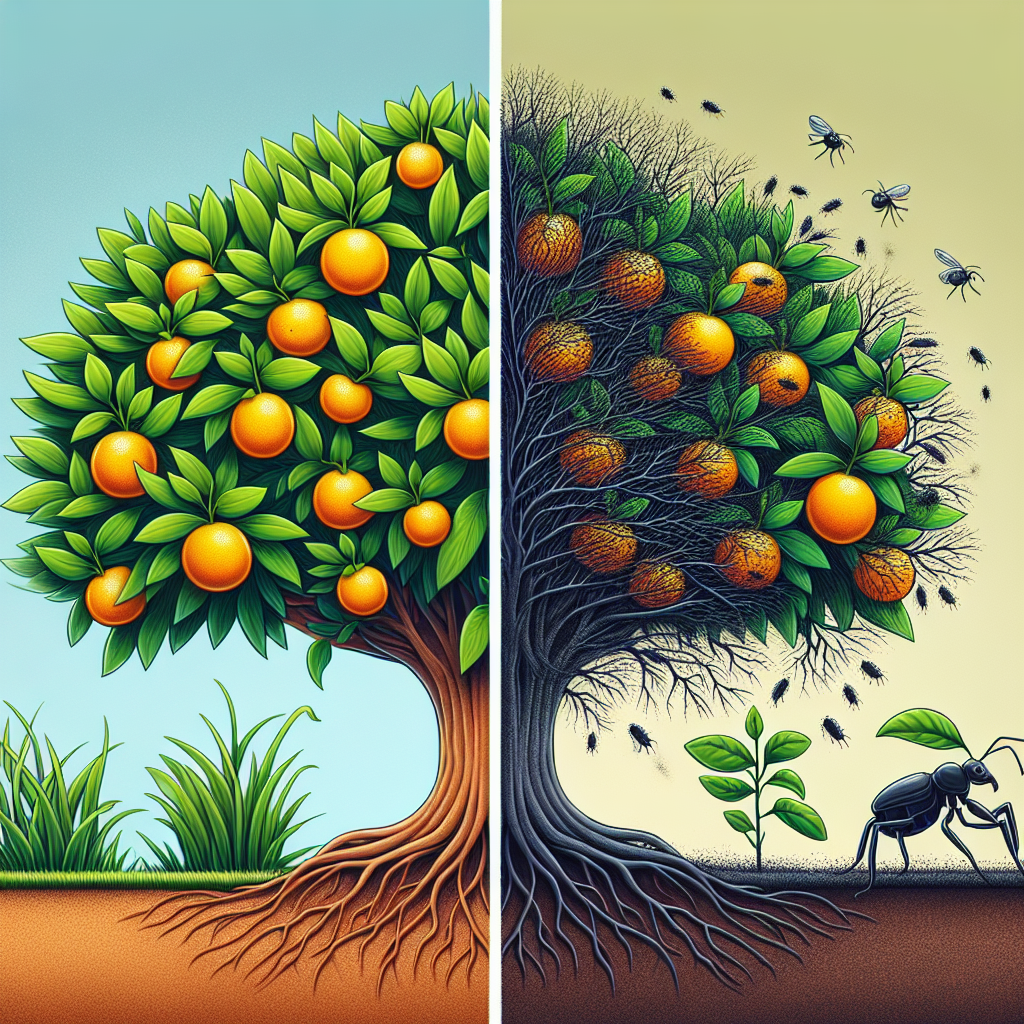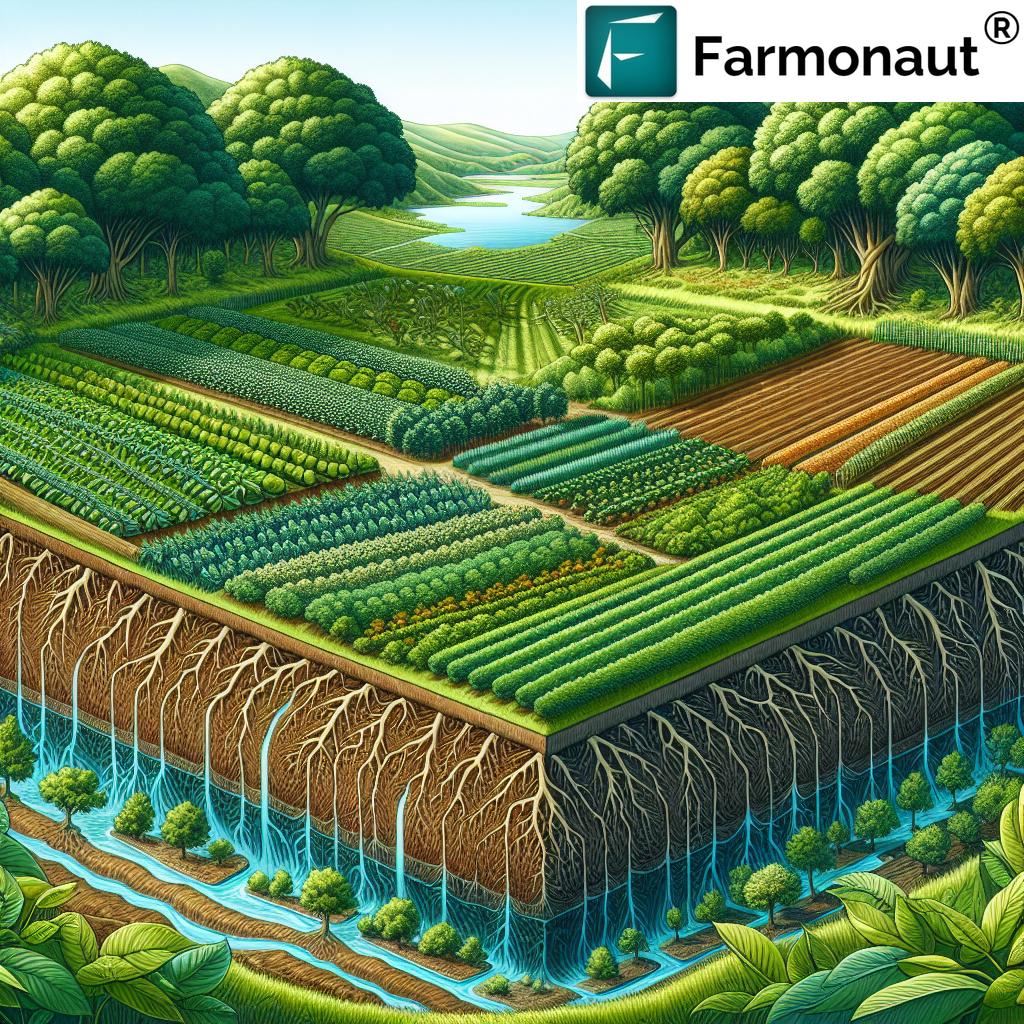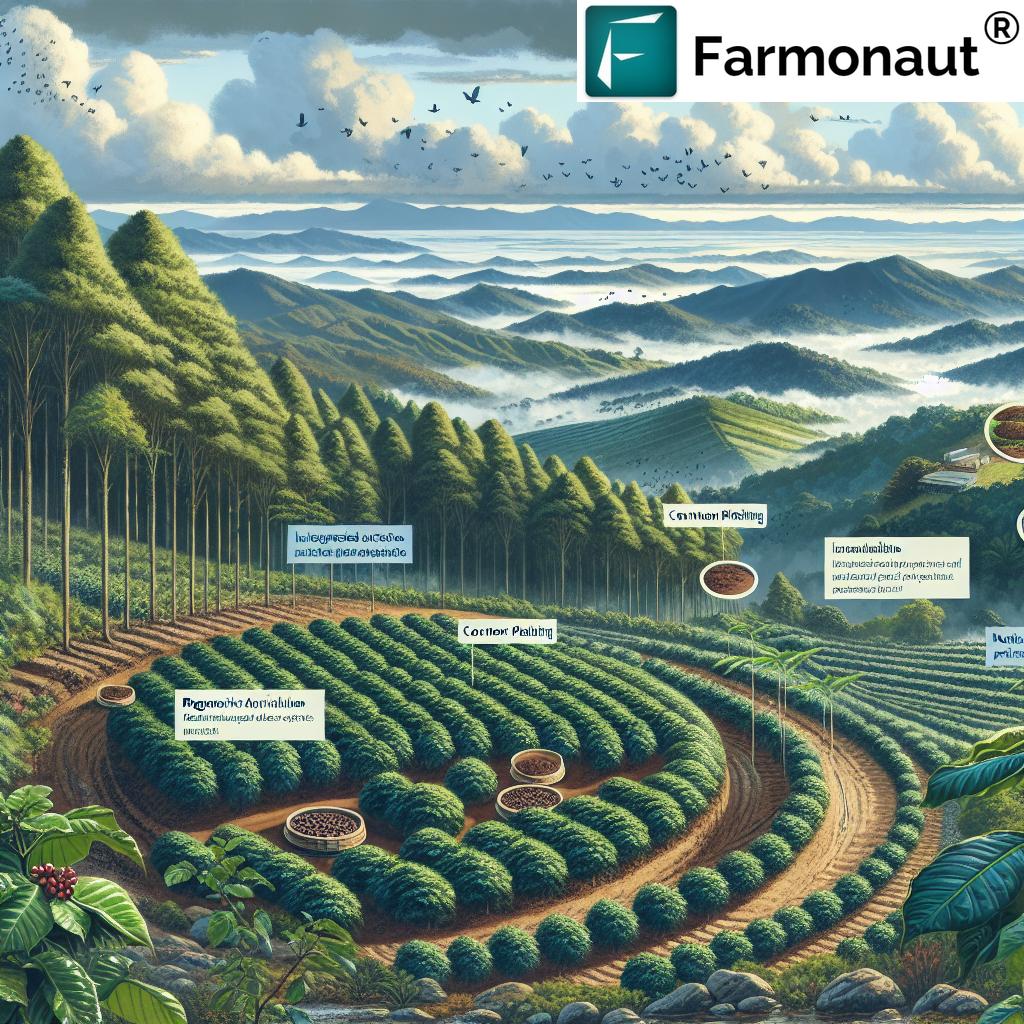Pineapple Prowess: From Record-Breaking Fruit Cutting to Global Agricultural Trends
“The world’s fastest pineapple cutter can slice through 85 pineapples in under 40 minutes, setting a new global record.”
Welcome to Farmonaut’s latest blog post, where we dive into the juicy world of global agriculture, innovative farming techniques, and the unexpected intersections of culinary skills and horticultural prowess. Today, we’re slicing into a topic that’s as sweet as it is surprising: the record-breaking feat of pineapple cutting and its ripple effects across the agricultural landscape.
A Fruitful Feat: The World Record Fruit Cutting
In a world where speed and precision often take center stage, a new champion has emerged from an unexpected corner: the realm of fruit cutting. We’ve witnessed an extraordinary event that has captured global attention and left us all a bit… prickly with excitement. A skilled fruit artisan has set a new world record for pineapple cutting, demonstrating a level of prowess that’s simply unbeleafable!
This fruity feat isn’t just about showing off knife skills; it highlights the fascinating intersection of culinary arts and agricultural innovation. As we peel back the layers of this story, we’ll explore how such events shine a spotlight on the importance of efficiency and skill in food processing – a crucial aspect of the journey from farm to table.
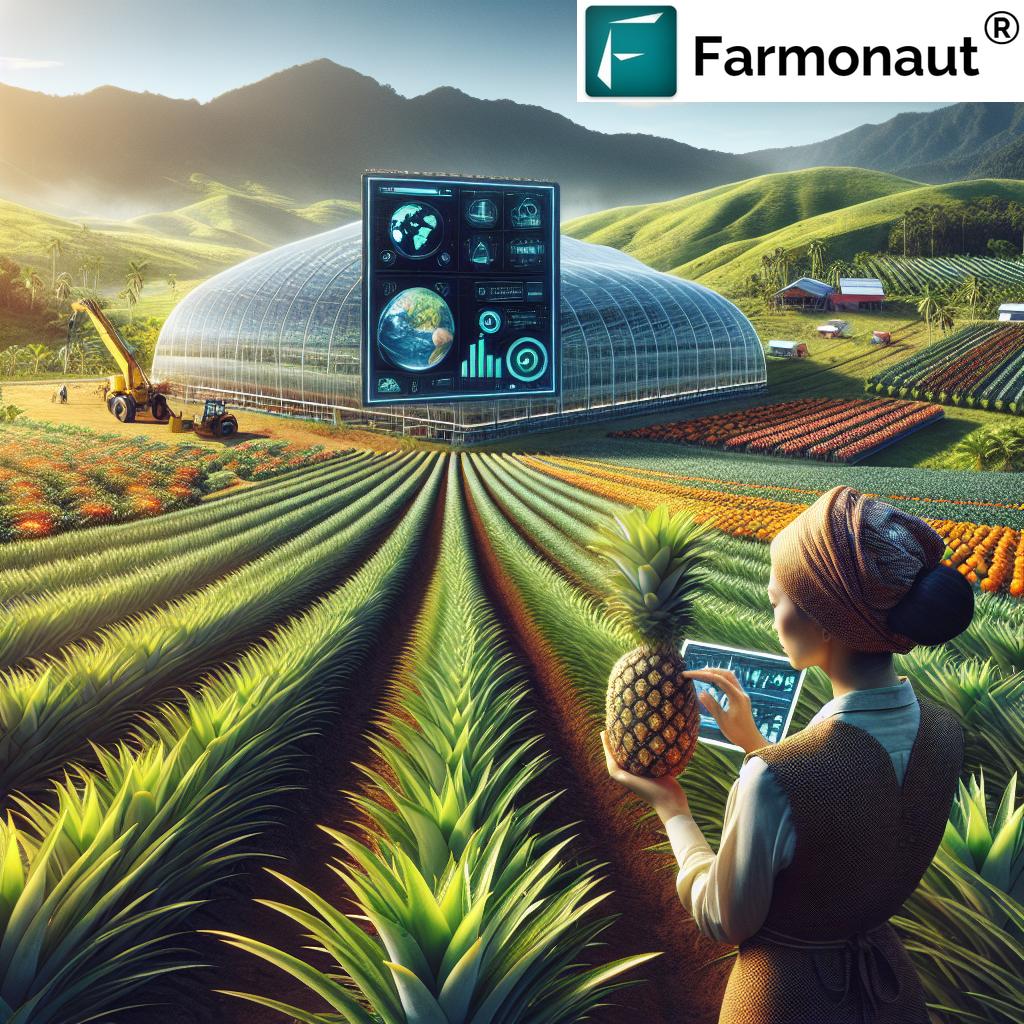
The Global Fresh Produce Market: A Juicy Overview
While some regions face challenges in fresh produce consumption and cultivation, others are thriving. This dynamic landscape of global horticulture presents a complex picture of the fruit and vegetable market. Let’s take a closer look at some of the key trends shaping the industry:
- Declining fresh fruit consumption in certain areas
- Emerging markets for exotic fruits
- Shifts in traditional farming regions
- The rise of climate-resilient farming practices
These trends are reshaping how we grow, distribute, and consume fresh produce worldwide. As we navigate these changes, innovative agricultural techniques and technologies play a crucial role in addressing challenges and seizing new opportunities.
A Tale of Two Crops: Garlic’s Decline and Pomegranate’s Rise
“Croatia’s pomegranate industry is flourishing, with production increasing by 30% in the last five years, outpacing regional trends.”
In the ever-changing landscape of global agriculture, we’re witnessing some intriguing developments. Spain, long known for its robust garlic farming industry, is experiencing a decline in cultivation. This shift is attributed to various factors, including changing market demands and environmental pressures.
On the flip side, Croatia’s pomegranate industry is blossoming like never before. This surge in pomegranate cultivation showcases the dynamic nature of global horticulture and how different regions adapt to changing consumer preferences and climate conditions.
Spain’s Garlic Farming: A Spicy Situation
Spain has long been a powerhouse in garlic production, but recent years have seen a decline in cultivation. Several factors contribute to this trend:
- Increased competition from other garlic-producing countries
- Rising production costs
- Changing consumer preferences
- Environmental challenges, including water scarcity
Despite these challenges, Spanish farmers are exploring new varieties and cultivation techniques to maintain their position in the global garlic market.
Croatia’s Pomegranate Boom: A Fruitful Endeavor
While Spain grapples with its garlic situation, Croatia is experiencing a pomegranate renaissance. This superfruit has found a happy home in the Croatian climate, and farmers are reaping the benefits:
- Ideal growing conditions in coastal regions
- Increasing global demand for pomegranates and their derivatives
- Government support for diversifying agricultural exports
- The fruit’s reputation as a health food driving consumer interest
The success of Croatia’s pomegranate industry serves as an inspiring example of how agricultural adaptation can lead to new opportunities.
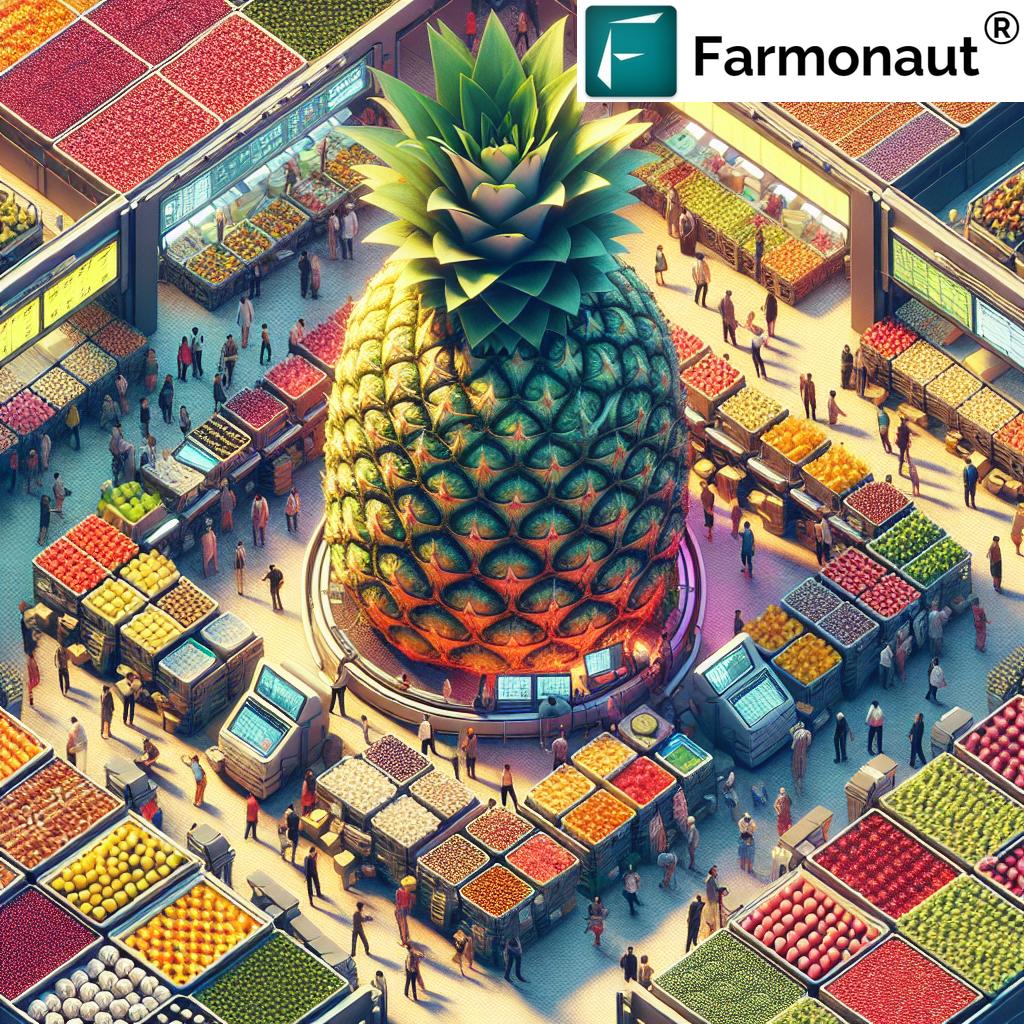
Solomon Islands: A New Player in the Pineapple Game
Speaking of new opportunities, let’s turn our attention to a developing story in the South Pacific. The Solomon Islands are preparing to export pineapples to Australia, marking a significant milestone in their agricultural industry. This move exemplifies the evolving landscape of international fruit trade and highlights the potential for smaller nations to carve out their niche in the global market.
Key factors driving this development include:
- Favorable growing conditions for pineapples in the Solomon Islands
- Strategic geographical proximity to Australia
- Efforts to diversify the Solomon Islands’ economy
- Australia’s demand for tropical fruits
This development not only promises economic benefits for the Solomon Islands but also offers Australian consumers a new source of fresh, tropical goodness.
Innovative Agricultural Techniques: Cultivating the Future
As we navigate the challenges and opportunities in global agriculture, innovative farming techniques are playing an increasingly crucial role. These advancements are helping farmers adapt to changing climates, improve yields, and meet evolving consumer demands.
Climate-Resilient Farming: Weathering the Storm
With climate change posing significant challenges to agriculture worldwide, farmers are turning to climate-resilient farming practices. These techniques help crops withstand extreme weather events and adapt to changing growing conditions:
- Drought-resistant crop varieties
- Water-efficient irrigation systems
- Soil conservation practices
- Diversification of crop types
By implementing these strategies, farmers can ensure more stable yields and food security in the face of climate uncertainty.
Greenhouse Cultivation: A Controlled Environment
Greenhouse technology is revolutionizing how we grow fruits and vegetables. By creating controlled environments, farmers can:
- Extend growing seasons
- Protect crops from pests and diseases
- Optimize resource use, including water and fertilizers
- Produce crops in areas with challenging climates
This technology is particularly valuable for high-value crops and in regions where traditional outdoor farming is difficult.
Organic Practices: Meeting Consumer Demands
The growing consumer interest in organic produce has led to an increase in organic farming practices worldwide. These methods focus on:
- Natural pest control techniques
- Soil health management
- Crop rotation and biodiversity
- Reduced reliance on synthetic chemicals
Organic farming not only meets consumer demand but also contributes to more sustainable agricultural practices.
The Role of Technology in Modern Agriculture
In today’s rapidly evolving agricultural landscape, technology plays a pivotal role in enhancing productivity, sustainability, and efficiency. At Farmonaut, we’re at the forefront of this agricultural revolution, providing innovative solutions that empower farmers and agribusinesses.
Satellite-Based Crop Monitoring
One of the key technologies transforming agriculture is satellite-based crop monitoring. This advanced technology allows farmers to:
- Track crop health in real-time
- Identify potential issues before they become serious problems
- Optimize resource allocation, including water and fertilizers
- Make data-driven decisions for better yields
Farmonaut’s satellite-based crop health monitoring system provides valuable insights that help farmers maximize their productivity while minimizing resource waste.
AI-Powered Advisory Systems
Artificial Intelligence is revolutionizing farm management by providing personalized recommendations based on vast amounts of data. Our Jeevn AI Advisory System offers:
- Real-time insights on crop management
- Customized advice based on specific farm conditions
- Weather forecasts and alerts
- Pest and disease predictions
This AI-driven approach helps farmers make informed decisions, leading to improved farm productivity and efficiency.
Blockchain for Traceability
In an era where consumers are increasingly concerned about the origin and journey of their food, blockchain technology offers a solution. Farmonaut’s blockchain-based traceability system:
- Ensures transparency in the supply chain
- Reduces fraud and improves food safety
- Builds consumer trust in agricultural products
- Facilitates more efficient recalls if necessary
This technology is particularly valuable for high-value crops and organic produce, where authenticity is paramount.
Global Fresh Produce Trends: A Fruity Snapshot
| Country/Region | Fruit/Vegetable | Trend | Estimated Impact (1-10 scale) |
|---|---|---|---|
| Global | Pineapple | Record-breaking fruit cutting | 7 |
| Spain | Garlic | Declining cultivation | 6 |
| Croatia | Pomegranate | Growing industry | 8 |
| Solomon Islands | Pineapple | New export opportunity | 9 |
| General | Climate-resilient crops | Increasing adoption | 8 |
| General | Greenhouse cultivation | Rising popularity | 7 |
| General | Organic practices | Growing consumer demand | 8 |
The Future of Fresh Produce: Challenges and Opportunities
As we look to the future of the fresh produce industry, we see a landscape filled with both challenges and exciting opportunities. Let’s explore some of the key factors that will shape the future of fruit and vegetable production:
Climate Change Adaptation
Climate change continues to pose significant challenges to agriculture worldwide. However, it also drives innovation in farming practices:
- Development of heat and drought-tolerant crop varieties
- Implementation of water-saving irrigation techniques
- Adoption of vertical farming in urban areas
- Increased focus on sustainable farming practices
Changing Consumer Preferences
Consumer tastes and preferences are evolving, influencing what and how we grow:
- Growing demand for organic and locally sourced produce
- Increased interest in exotic and “superfood” fruits and vegetables
- Rise of plant-based diets driving demand for diverse produce
- Preference for convenient, ready-to-eat fresh produce options
Technological Advancements
Technology continues to revolutionize the agricultural sector:
- Precision agriculture techniques for optimized resource use
- Robotics and automation in planting, harvesting, and processing
- Gene editing for improved crop resilience and nutritional value
- IoT devices for real-time monitoring and management of farms
Farmonaut: Empowering the Future of Agriculture
At Farmonaut, we’re committed to driving innovation in agriculture and supporting farmers in meeting these future challenges. Our suite of tools and technologies is designed to empower farmers, agribusinesses, and policymakers with the insights they need to make informed decisions.
Satellite-Based Farm Management
Our advanced satellite technology provides real-time insights into crop health, soil moisture, and more. This allows farmers to:
- Optimize resource allocation
- Detect and address issues early
- Improve overall farm productivity
Explore our satellite-based solutions: Farmonaut Web App
AI-Powered Advisory
Our Jeevn AI system offers personalized recommendations based on farm-specific data, helping farmers:
- Make data-driven decisions
- Implement best practices for their specific crops and conditions
- Stay ahead of potential issues with predictive analytics
Get AI-powered insights on your mobile device: Android App | iOS App
Blockchain Traceability
Our blockchain-based traceability solutions help build trust and transparency in the supply chain, enabling:
- End-to-end tracking of produce from farm to table
- Verification of organic and sustainable farming practices
- Enhanced food safety and quality control
Learn more about our API solutions: Farmonaut API | API Developer Docs
Conclusion: A Fruitful Future
From record-breaking pineapple cutting to the rise of pomegranate farming in Croatia, the world of fresh produce is as dynamic and exciting as ever. As we navigate the challenges of climate change, changing consumer preferences, and technological advancements, the future of agriculture looks bright and full of opportunity.
At Farmonaut, we’re proud to be at the forefront of this agricultural revolution, providing the tools and insights needed to cultivate a more sustainable, productive, and resilient future for farming. Whether you’re a small-scale farmer, a large agribusiness, or somewhere in between, we’re here to support your journey towards more efficient and sustainable agriculture.
As we wrap up this fruity journey through global agricultural trends, remember that the future of farming is in our hands. By embracing innovation, sustainability, and data-driven decision-making, we can ensure a bountiful harvest for generations to come.
FAQ Section
Q: What is the significance of the world record fruit cutting event?
A: The world record fruit cutting event highlights the importance of efficiency and skill in food processing. It also draws attention to the global pineapple industry and the intersection of culinary arts and agriculture.
Q: Why is Croatia’s pomegranate industry thriving?
A: Croatia’s pomegranate industry is flourishing due to ideal growing conditions, increasing global demand for pomegranates, government support for agricultural diversification, and the fruit’s reputation as a health food.
Q: What are some innovative agricultural techniques mentioned in the blog?
A: The blog discusses climate-resilient farming, greenhouse cultivation, and organic farming practices as innovative techniques shaping the future of agriculture.
Q: How is technology impacting modern agriculture?
A: Technology is revolutionizing agriculture through satellite-based crop monitoring, AI-powered advisory systems, blockchain for traceability, and precision farming techniques, all of which improve efficiency and sustainability.
Q: What services does Farmonaut offer to farmers and agribusinesses?
A: Farmonaut offers satellite-based farm management solutions, AI-powered advisory services, blockchain traceability systems, and various tools for optimizing agricultural operations and decision-making.



